Richard Hugo Reminds Us

Richard Hugo commands the end of a rectangular table in the seminar room on the second floor of the Liberal Arts building at the University of Montana in Missoula as outside the weekday windows he faces rages 1970’s Vietnam War.
Hugo knows war far, far too well.
His poem “When We Crashed” rocks pages with terror from when he was a WW II bombardier slammed out of the sky to Europe’s earth. He flew 35 combat missions. Years later, he met Pulitzer Prize winning poet Charles Simic in San Francisco and they realized Hugo’d bombed Yugoslavia where Simic was five years old.
In that 1970 UM seminar room, call Hugo “the teacher” –
-- too small of a word, but use what we’ve got.
A score of “creative writing” students sit around the table hoping – as Hugo wrote -- to “ride the forces of whatever sweeps us along…to be tougher than fate.”
Hugo’s a bulldog. Horseshoe balding. Steel squint. Open collar shirt. A sports jacket strains across the shoulders of this former semi-pro baseball catcher. He’s gruff but with self-deprecating humor and genuine laughs. He listens. More than that, he senses. Feels. Searches for the heart of this moment.
All of us students in that UM room know he’s a brilliant poet.
None of us know all the currents of his tortured soul.
He once wrote: “A poet is like a drummer alone in the ballroom of a deserted hotel.”
He’d changed his name.
Who of us hasn’t imagined that bold move?
He was born Richard Franklin Hogan on the south side of Seattle in 1923, shuttled to live with his maternal grandparents to be raised, beaten and belittled. Grew up depressed in the poverty of The Great Depression. Started writing at age 9 because…because…Because he had to. Because that’s what he had. Or had him.
Nineteen years after his birth, The Law let him change his name to Richard Franklin Hugo.
Then he joined the Army Air Corps. Became a bombardier. Came back with a chest full of medals over a scarred heart.
The G.I. bill helped him pay for the University of Washington where he found a mentor in the legendary poet Theodore Roethke –
-- and admitted the necessity in his soul that gave him hope and meaning, a current that swept him forward with it, ordered him to swim -- write, create, realize poems.
“Writing is a slow, cumulative way of accepting your life as valid,” Hugo’d later say. “Of accepting yourself over a lifetime. Of realizing that your life is important. And it is. It’s all you’ve got. All you ever had for sure.”
He loved jazz and movies, watched his favorites over and over again.
He got his B.A., then his M.A. in 1952. He forgot to pay the graduation fee.
That same year, Hugo embraced a victory that for decades he’d feared he’d never ever get and that he’d never before came close to touching.
Cough.
Sitting to Hugo’s right in that 1970 UM seminar room is an affable Montana student with that Beatles era shaggy hair & beard. Call him Nick.
It’s Nick’s turn to read his new poem out loud in this room:
A short saga about the narrator failing to move a woman he loves.
No student in the room knew how hard Nick’s poem stabbed Hugo.
Hugo’s autobiography and miles of other writings reveal, plead, confess that all through his growin’ up years of Junior High, high school, the War and beyond, he’d been terrified that he’d never find a woman who wanted to touch him, who wanted to have sex with him, who would see him and see love. That he didn’t know what to say, to do, how to woo. Such hopeful dreams we of all genders share were his obsessive nightmares.
Hugo won a victory over his fear of loneliness in 1952 with his first marriage to Barbara while he worked as a Technical Writer at Boeing in Seattle. He’d show his colleagues at work his poems. Get mixed reactions. Publish his first book A Run Of Jacks in ’61. He and Barbara traveled to Italy in ’63. Among his many poems from that era and beloved country he’d return to again and again is the poem he wrote upon learning there about JFK’s assassination in Dallas.
From ’64 to ’65, he held his first gig at UM as a Visiting Lecturer.
Then he and Barbara divorced.
Now in that 1970 seminar room, Hugo is single again as student Nick finishes reading his poem about forlorn love.
Hugo asks us in that room what we think about Nick’s poem.
There are shrugs. Nods. A couple soft comments. No real suggestions.
Nobody wants to face a firing squad when it’s their poem’s turn.
Professor Hugo…Poet Hugo…PersonHugo at the head of the killing table makes a solid but soft comment on how Nick could improve his poem.
“Huh,” says Nick. “I’ll have to go back and hit it on my typewriter.”
“What?!” shouts Hugo. His bulldog face projects horror. “You wrote your poem on a TYPEWRITER? No! No, no, no!Use a Goddamn pencil! A Number 2 everyday pencil to write any, every poem! And don’t erase what you think’s a mistake! Scratch it out. And no pens either! You gotta feel the poem all the way down!”
Hugo shakes his head. Shudders. Slumps.
His expression reflects a cliché of that era about needing a drink.
Alcohol was Hugo’s dangerous obsession.
He drank. Drank a lot. None of those seminar students saw it effect his performance as their teacher. In later years, after he’d kicked booze out of his life, he’d write about that struggle with depth and honesty.
But even within the rivers of booze, he insisted on being Dick Hugo.
His favorite watering hole in Montana was not a rock ‘n’ roll cavern or an elegant blondes bar or a hip intellectual & artists saloon on Missoula’s Higgins Avenue “Main Street.”
Dick Hugo loved a “joint” on Missoula’s outskirts frequented by working class souls like him. “The Milltown Union Bar” became both a refuge and a poem.

Blink & he and we are back in that 1970 seminar room.
Student Julie asks her professor how to deal with writer’s block.
“You’re blocked?” says Hugo. “Get out of your house. First person you see: What color is their shirt? Let’s say blue, right? Walk the street. The first blue car you see – don’t blah blahnitpick. That car’s license plate. The first two numbers are the number of lines. The next two numbers are the number of syllables per line. Write a poem to those rules. ‘Bout halfway through that prison formula, what you really wanna, what you gotta, what you really should be writing will break out of writer’s block ‘n’ you’ll be free.”
Freedom, wonderful, terrible freedom is laced through Hugo’s work.
I think freedom is one reason why he loved baseball.
Hugo played Seattle kids’ ball, semi-pro baseball, local softball.
Wrote “Missoula Softball Tournament,” a powerful poem about “the wives, the beautiful wives” of the adult jobholding players in a Missoula city league where wives and husbands both could create more meaning and joy in their lives than just what their roll-of-the-dice gotchas, work labels and homelife rules dictated, a place to do and be and dream beyond such realities.
A sense of place is crucial in Hugo’s works.
Place includes things like his dictum to end each line of a poem on a strong word.
He loved finding and going to new places. Exploring.Seeing not just passing through. One of his poems is called “Driving Montana” – and he did that.
Now sitting in that 1970 UM seminar room he tells us that a few certain places have an intensity of power, being and force that make that defined place far different from the most of the world’s physical and spiritual geography. Good and bad are only swirls within that force. The force is not necessarily from humanity’s footsteps on that earth. What is and what happened, what might be or might never be there creates a force beyond itself.
“Let’s go around the table,” says Hugo. “Tell me where you’re from.”
One by one, his students obey his your turn now nods.
Names of towns in Montana. A couple out-of-staters. A big city walker.
Hugo is bulldog alert but saying nothing, revealing nothing.
Comes my turn and I say my hometown’s one word: “Shelby.”
Pause.
Hugo’s force leans on me from the end of the table.
And he says: “Yeah, you know what I’m talking about.”
I did, I do, yet it took me 50 years to let all that rise in my writing.
Hugo moves on to the next student, the next named place.
Says nothing about any of the other students’ answers.
He never wrote directly naming Shelby.
Fort Benton, yes, a place whose power his poem proves.
And perhaps his most famous poem is “Degrees of Gray In Phillipsburg,” a wow whose phrase “the last good kiss” gave a winning title to his UM colleague James Crumley’s 1978 crime novel, a genre also then mined by UM professor, legend and Hugo colleague James Lee Burke. Hugo himself in 1981 would publish a mystery novel Death And The Good Life, the only novel in his oeuvre of poetry, criticism and autobiographical books that helped him forge a kinship with UM author/teacher/legend William Kittredge.
I don’t know if Hugo knew or found friendship with his era’s Montana literary stars Dorothy Johnson and A.B. Guthrie. But I hope so.
Hugo was a mentor and friend to James Welch, a died too soon Montana author of such books as The Indian Lawyer. Browning-born Welch was a poet, too, yet as Hugo predicted, he found his real home in fields of fiction.
The fields of Hugo’s life opened up with more joy after that 1970 seminar class.
He became Visiting Poet at the University of Iowa. Held the Roethke Chair at the University of Washington. Visiting Professor at the University of Colorado. Visiting Distinguished Professor at University of Arkansas. Editor of the Yale Younger Poets series. Return appointments at UM. He won a Guggenheim Memorial Fellowship, the Roethke Poetry Award and was a runner-up for the Pulitzer Prize.
But perhaps his greatest joy came from marrying Ripley in 1974, finding heartfuls of love and creating with her a family with her two children, cats, dogs and horses near Rattlesnake creek.
He and Ripley traveled through time and space together.
Our memories of time and space are hard to grasp for certain, especially as we age.

Shuffling my memory of the what with the when of the last time I encountered Richard Hugo folds as a maybe then within a story from his autobiography The Real West Marginal Way.
We know Hugo was in Washington, D.C. where I lived in January, 1980. He came there then for a White House national celebration honoring American poets created by First Lady Rosalyn Carter.
Possibly that was when this happened.
Hugo was invited to give a reading at Washington’s oh so elite Cosmos Club where he needed to wear a suit or at least sports jacket & a tie, not the preferred apparel for him or me, yet I too donned a suit & tie and wrangled an invitation to this reading coming six years after my first novel Six Days Of The Condor (written in Helena, sold from Missoula) launched 1975’s Robert Redford movie, 2018’s Max Irons TV series and my lucky career that in 1980 had me also muckraking for Jack Anderson’s syndicated investigative reporting column that then appeared in 1,000 newspapers.
Imagine:An America with 1,000 newspapers.
My heart beat with joy to be in the Cosmos Club listening to the poet who’d taught me so much – including much that I had yet to fully grok.
The reading was over.
The elite crowd came forward to greet Hugo.
As they thinned away from the table where he sat, I approached. Babbled nervously. Told him I was a former UM student of his. Thanked him for teaching me so much. Told him about my Condor and other novels. Thanked him again.
The bulldog frowned. Peered at me with those keen steel eyes filled with the ghosts of thousands of students beyond his classes I took at UM.
“Ahh,” he said. “I think…I think I remember you now.”
He smiled his joy at one of his having gotten this far as a prose-slinger.
As his Cosmos handler encouraged my departure, Hugo said: “Wait!”
Then with the gruff laughter that carried him through life told me: “Tell them (the publishing world) to start paying more to poets!”
Ahh, the timeless rebel plea in that year when The Brains released their rock ‘n’ roll anthem “Money Changes Everything.”
Bystanders heard Hugo’s “joke” and chuckled.
But our eyes met. Knew what he meant:
Money didn’t drum our hearts.
“The only real reward of writing,”he’d later write, “is that special way you feel just when you’ve done something you like.”
We nodded `See you!’ in that elite private club of wealth and power.
And I drove through the night streets of D.C. to my now.
Two years later, Hugo died of leukemia in Seattle, the city of his birth.
Left us with 14 volumes of his savvy and soul, the most important of which is the thick volume of his collected poems called Making Certain It Goes On.
As all of us in that 1970 UM seminar room and reading here must do.


James Grady’s critically acclaimed Montana-based novel THE SMOKE IN OUR EYES was published in 2024 and its sequel AMERICAN SKY will publish in Summer 2025.

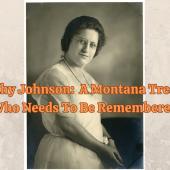
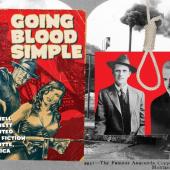

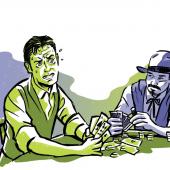
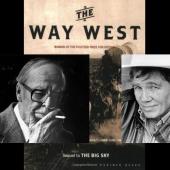
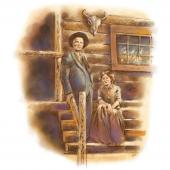


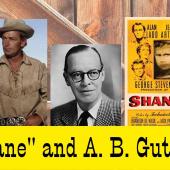

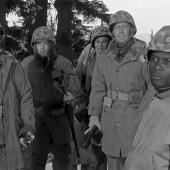
Leave a Comment Here